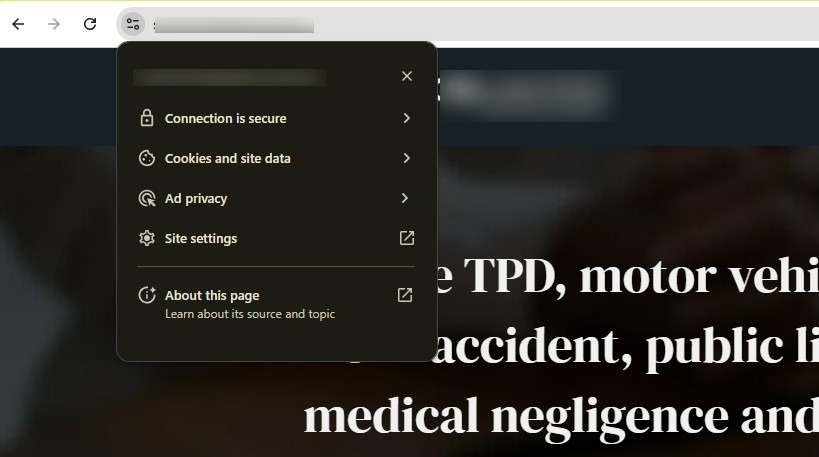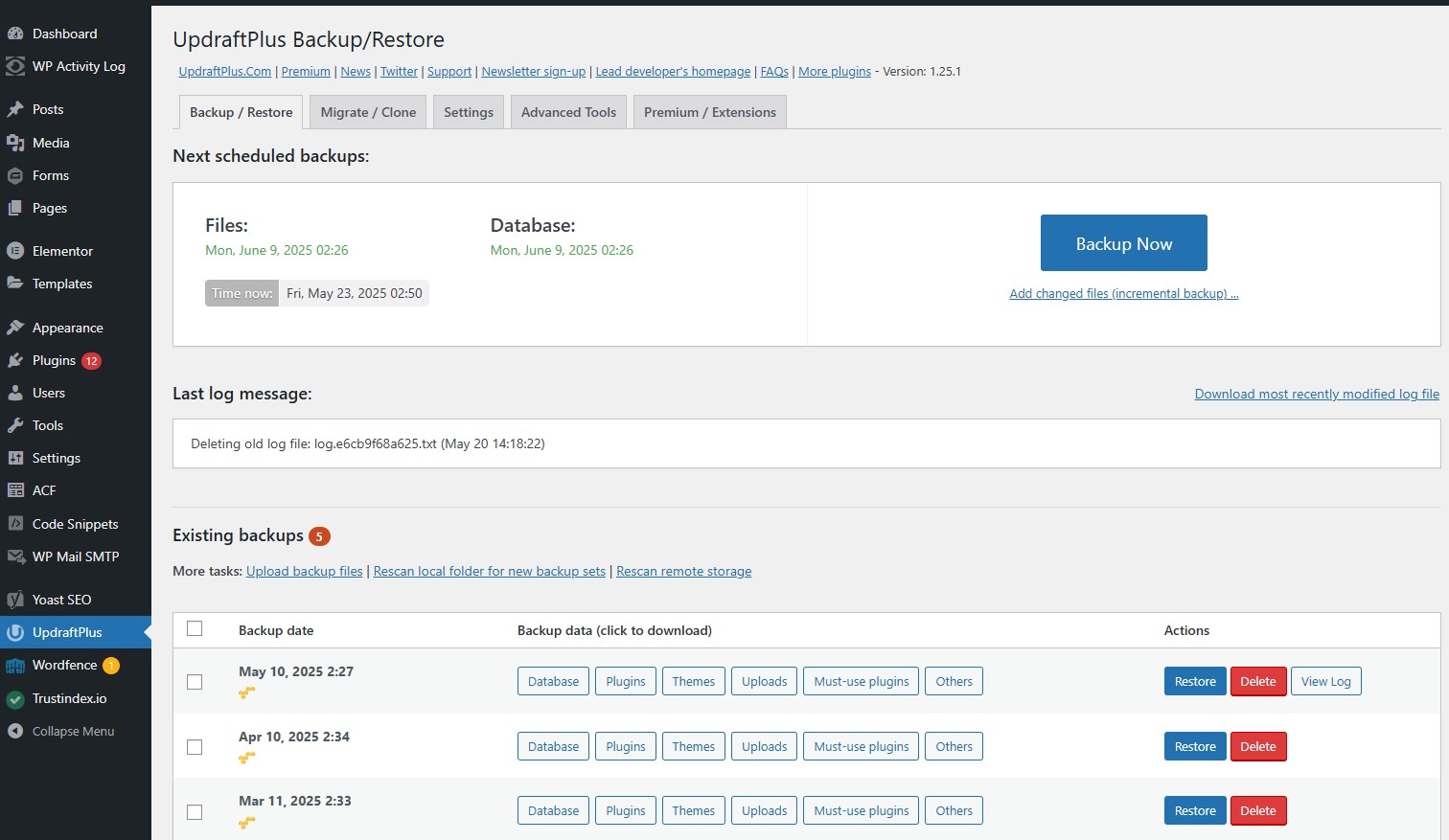Lawyers handle sensitive client data that must be protected. This article provides essential website security strategies to keep your firm safe from cyberattacks. Whether you’re using a custom-built site or managing WordPress websites for lawyers, strong security practices are essential. This guide is especially relevant for firms relying on managed WordPress for lawyers or agencies building professional websites for lawyers who need secure, compliant platforms.
Key Takeaways
- Law firms must prioritize website security to protect sensitive client data and maintain their reputation against cyber threats. This is particularly important for secure lawyer websites handling confidential or regulated information.
- Implementing SSL certificates and Two-Factor Authentication is critical for enhancing online cyber security and building client trust.
- Regular updates, secure hosting services, and strong password management are essential strategies for maintaining website security and preventing data breaches.
The Importance of Website Security for Law Firms
The significance of website security for law firms cannot be overstated, given the critical and confidential nature of the data they manage. Websites associated with legal entities are repositories for client information, case documents, and other proprietary content that makes them attractive targets for cybercriminals. A successful attack on a law firm’s website can precipitate serious data breaches and potential legal action, endangering both the integrity and esteem of the practice.
Law firms face heightened exposure when cyber security safeguards are inadequate—particularly through third-party vendors who have system access or handle sensitive firm data. Staff members might inadvertently become a vulnerability in protecting this information due to careless behavior or insufficient awareness about cyber threats. Fostering an environment focused on stringent cybersecurity practices is crucial in raising awareness among employees regarding their role in safeguarding against these dangers.
Recognizing how vital it is to protect your law firm’s online presence lays down the groundwork for ensuring its digital properties are defended robustly. Employing comprehensive protective measures not only secures private client details but also cultivates confidence amongst clients—an imperative element as trustworthiness becomes ever more central within today’s technologically driven landscape where securing one’s operations from hackers is paramount.
Implementing SSL Certificates for Law Firm Websites
SSL certificates serve as an essential layer of security for law firms, ensuring that client data is encrypted while being transmitted and safeguarding it from potential interception. Law firms without SSL certification expose their clients to risks such as man-in-the-middle attacks, which could lead to a significant breach of sensitive information. These certificates are instrumental in fostering trust with clients by indicating the presence of secure communication protocols indicated by HTTPS.
In terms of search engine optimization (SEO) benefits, having an SSL certificate holds significant weight. Search engines like Google consider the presence of SSL certification when ranking websites on search engine results pages (SERPs), favoring those that offer a secure connection. A higher rank on SERPs often translates into increased traffic and enhanced credibility for your firm.
To ensure constant website protection, it’s vital for law firms to stay vigilant about monitoring and renewing their SSL certificates regularly.
Two-Factor Authentication: A Must for Maximum Security
For law firms, incorporating Two-Factor Authentication (2FA) is a vital aspect of fortifying website security. It necessitates two distinct verification methods from users, substantially bolstering the safeguarding of accounts and presenting formidable challenges for hackers attempting to gain unauthorized entry. The additional step required by 2FA can deter cybercriminals from attacking and serves to shield sensitive data against illegitimate access.
Activating 2FA is relatively simple. Users are capable of setting up this feature via their account’s security options, selecting an auxiliary verification form they prefer—for instance, receiving a code on their mobile device.
Finally, it’s imperative for firms to verify that the newly implemented 2FA operates correctly post-activation as part of their comprehensive security measures. This ensures that all components function effectively in unison. By integrating 2FA into its defense strategy, law firms solidify maximum protection levels and robustly secure valuable digital assets against potential threats.
Regular Updates: Essential for Law Firm Website Security
Cyber attackers often aim their efforts at outdated websites that are not maintained with routine updates, increasing the likelihood of security breaches and incidents. It is essential for law firms to commit to regular updates in order to prevent these security issues and thwart hacker attempts. To keep a website secure from harmful links, consistent updating of content management systems, plugins, and extensions is necessary.
Incorporating recent security patches provided by software updates plays a critical role in shielding against cyber threats and closing off potential weaknesses. By staying current with software upgrades, law firms can ensure robust protection of sensitive client data against the constantly changing landscape of online dangers.
Not only do periodic updates strengthen cybersecurity measures, but they also boost overall website functionality and enhance user interaction. Augmenting the firm’s presence on its new site through improved performance metrics.
It is generally best to perform these updates manually each time rather than relying on automatic updates, especially with platforms like WordPress, where auto-updating can sometimes lead to incompatibilities and other technical issues. For law firms seeking expert assistance, services like Resolve’s website maintenance offerings include these vital updates, ensuring that the website is consistently kept secure and up to date by professionals who stay on top of the latest security requirements.
Secure Hosting Services for Legal Websites
Ensuring that a law firm’s website is hosted on a web server with robust security measures is crucial for mitigating the risk of data breaches and hacking incidents. Law firms require hosting services that not only offer ample server capacity, consistent uptime, scalability options, but also customize their security protocols to meet the unique needs of legal businesses. These safeguards are especially critical for WordPress websites for lawyers, where popular platforms are frequent targets for exploits and must be properly configured to reduce risk.
Law firms ought to seek out hosting providers offering advanced protection such as biometric access controls, surveillance cameras, and round-the-clock onsite security personnel. Website hosting services, like those provided by Resolve, can cater specifically to different vulnerabilities inherent in diverse web server platforms—delivering all-encompassing defense mechanisms. Providers that offer managed WordPress for lawyers help ensure security configurations are regularly maintained—making them a smart option for firms that need professional websites for lawyers without technical overhead.
Opting for secure hosting solutions enables law firms to defend their digital resources effectively while ensuring they possess an unassailable online presence via a secure portal—a critical component that fosters opportunities within the professional sphere.
Password Management Best Practices
Enhancing security to guard against unauthorized access is critically important, and employing strong, unique passwords serves as a foundational step in this process. A potent password will typically contain an assortment of uppercase letters, lowercase letters, digits, and symbols. It’s equally vital to avoid using the same password for different accounts in order to reduce potential risks.
The adoption of a password manager, such as LastPass or 1Password, can greatly ease the burden of managing numerous passwords while bolstering security measures. Contemporary advice suggests steering clear of mandatory routine changes of passwords since they might not necessarily enhance protection levels. Adhering to these recommended practices allows law firms to safeguard their sensitive data and ensure secure access control against possible infiltrations.
Data Encryption Techniques
Employing robust encryption methods like RSA or AES is critical for bolstering the security of sensitive information. It’s vital that law firms encrypt all varieties of data, including email and device storage, to safeguard against digital threats. The use of cloud encryption stands out as particularly significant since it guarantees that data is encrypted prior to its transfer to the cloud, preserving security even if a breach occurs.
The process of email encryption plays an indispensable role in securing the content of emails along with their attachments, thereby blocking any unsanctioned access to confidential information exchanged among involved parties. In summary, the practice of encrypting data remains pivotal in shielding delicate client information through its transit and while stored, assuring thoroughgoing protection for such crucial data.
Limiting Administrative Privileges
Implementing role-based access control is essential to restrict administrative privileges solely to individuals who need them for their roles. Adopting just-in-time access policies allows for a more efficient management of rights, while conducting regular reviews of privileged permissions ensures that only essential accesses are granted. This practice minimizes the likelihood of security incidents by enabling users to gain access at necessary times only.
To reduce possible ways for cyber-attacks, it’s a good idea to create special accounts for administrators that do not have access to the internet or email. Using separate user accounts just for admin tasks helps improve security by lowering the chance of unauthorized access. By limiting admin privileges, law firms can better protect their systems from hackers and keep sensitive information safe.
Secure Backup Strategies
Law firms hold sensitive information, making data backup essential for their operations. To effectively deal with unforeseen events leading to data loss, it’s important to have an exhaustive disaster website recovery strategy in place. While backups stored on-site offer prompt access to data, they are at risk from physical threats such as burglary or environmental catastrophes.
To augment security and safeguard against risks present at the primary site, off-site backups serve as a crucial defensive measure. Cloud-based solutions are becoming favored by law firms due to their flexibility and ease of accessibility. Managed hosting services that include routine automatic daily backups also significantly reduce the likelihood of losing data owing to various hazards.
Implementing robust backup protocols is critical for law firms aiming to ensure top-notch security and shield their invaluable data assets from potential threats.
Choosing Secure Plugins and Extensions
Ensuring website security, particularly for law firms, is paramount. To safeguard their sites against vulnerabilities, it’s imperative that they opt only for plugins and extensions from reputable sources endorsed by browser creators to diminish potential risks.
When contemplating the addition of a plugin to their site, law firms should diligently assess user feedback and the regularity of updates as indicators of its dependability. Continuously updating these components is vital in preserving website integrity and defense against malicious activities. By meticulously selecting and maintaining secure plugins, legal practices can ensure their websites are fortified effectively.
Building Client Trust Through Strong Security Measures
A secure website improves client trust. It also enhances the firm’s online reputation. Protecting client data is essential for ensuring client trust. Strong data protection measures build trust with potential clients, enhancing visibility and credibility. An SSL certificate also enhances credibility and trust in a law firm’s website.
Implementing strong cybersecurity measures helps law firms stand out and maintain client loyalty. Regular website maintenance ensures compliance with safety and security standards, further building client trust. Prioritizing website security helps law firms create and maintain strong relationships with their clients.
Final Thoughts
To summarize, safeguarding a website is imperative for law firms as it protects sensitive client information and upholds client confidence. Implementing measures such as SSL certification, two-factor authentication, regular updates, secure hosting solutions, and meticulous password management is fundamental to strengthening website security. Additionally, encrypting data, restricting administrative access privileges, maintaining robust backup procedures, and choosing secure plugins further enhance the protection of a legal firm’s online platform. These measures are not only essential for any site but especially important for maintaining secure lawyer websites built on scalable and trusted platforms like WordPress.
By following these security practices carefully, law firms can improve their online safety, build trust with clients, and strengthen their presence on the internet. Protecting their websites is not just a technical task—it’s a smart strategy that helps the firm stand out in the competitive legal market.
Frequently Asked Questions
Why is website security important for law firms?
Due to the sensitive client data and case files they handle, law firms are prime targets for cyberattacks, making robust website security vital. Additionally, lawyers and their clients often deal with large financial transactions, which further increases the risk of cybercriminals targeting their websites to intercept or manipulate these dealings.
If security measures fall short, firms risk experiencing data breaches and financial losses that could lead to severe legal repercussions.
How does an SSL certificate benefit my law firm's website?
An SSL certificate significantly boosts your law firm’s website by encrypting data during client communications, thereby enhancing security and trust.
Additionally, it improves your search engine rankings, helping attract more clients.
What is Two-Factor Authentication (2FA), and why is it important?
Two forms of identification are mandated by Two-Factor Authentication (2FA), which is vital for bolstering the security of an account and impeding hackers from gaining unauthorized access.
In the current era of digital interactions, this extra tier of defense is indispensable.
How often should I update my law firm's website software?
You should update your law firm’s website software regularly to ensure security and protect against evolving threats. Frequent updates for your content management system, plugins, and extensions are crucial. Typically, your WordPress dashboard will notify you about any available updates for the WordPress core, themes, or plugins, making it easy to stay current and maintain maximum security.
What are the best practices for managing passwords in a law firm?
The best practices for managing passwords in a law firm include using long, unique passwords with a mix of characters and avoiding password reuse.
Additionally, employing a password manager can significantly enhance security and streamline the risk management process.


